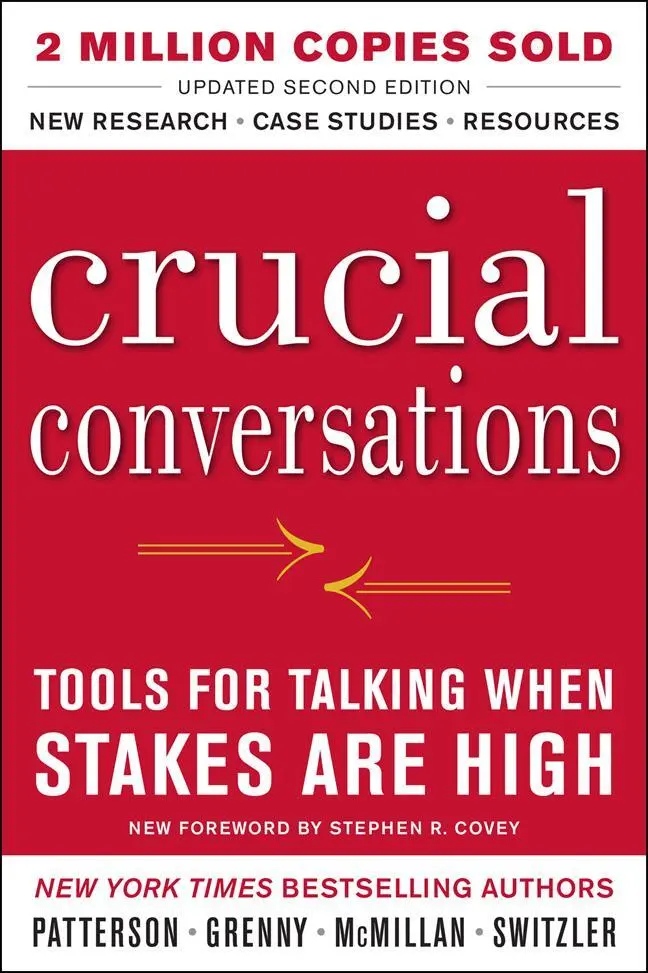Crucial Conversations: Tools for Talking When Stakes Are High

Book Authors: Kerry Patterson, Al Switzler, Joseph Grenny, & Ron McMillan
Key Takeaways:
Our emotions are incredibly plastic. In crucial moments they are almost always wrong. With practice, we can gain incredible power to change them. And as we change them, not only do we learn to change how we see those around us, but we learn to change our very lives as well.
We have to find and ask the right question to get the right solution.
The other person has the ability to choose how to respond to your efforts. These skills are not techniques for controlling others; they are not tools for manipulating behavior.
What if, instead, we see the single crucial conversation as the beginning of a dialogue—the first step toward making a negative relationship positive, the first of many steps necessary to right a wrong? What if we seek to have not just a conversation based on Mutual Purpose and Mutual Respect, but rather a rich relationship based on these conditions? To see these principles and skills as ways of building relationships, teams, and families over time is to take a longer-term perspective. The wisest use of these skills is to develop habits, lives, and loves, not to use them just occasionally in single interactions.
“If you use these skills exactly the way we tell you to and the other person doesn’t want to dialogue, you won’t get to dialogue.” However, if you persist over time, refusing to take offense, making your motive genuine, showing respect, and constantly searching for Mutual Purpose, then the other person will almost always join you in dialogue.